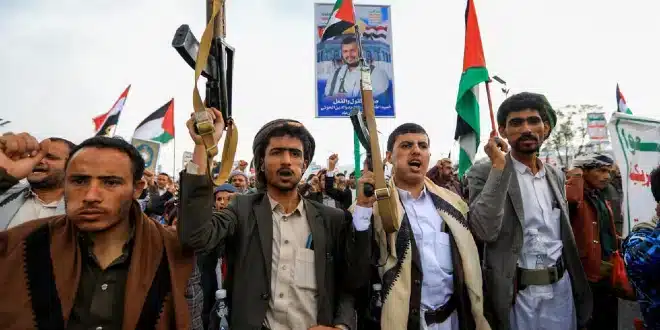The U.N. envoy for Yemen, Hans Grundberg, has highlighted significant risks of regional escalation due to recent tensions in the Red Sea, Israel, and within Yemen itself. Despite these concerns, there appears to be a hopeful development, as Grundberg revealed that Yemen’s conflicting parties — the internationally recognized government and the Houthi rebels — have agreed to a strategy to reduce hostilities that have intensified over control of the banking and transport sectors.
Grundberg briefed the U.N. Security Council on a particularly dangerous escalation that occurred last week, involving a Houthi drone strike on Tel Aviv and subsequent Israeli retaliatory strikes on Yemen’s crucial Hodeida port and its oil and power infrastructure. He noted ongoing Houthi attacks on Red Sea shipping and an increased suppression of civil society and international organizations by the rebels. He also reported that airstrikes targeting the Houthis by the U.S. and U.K. are ongoing.
Economic tensions are heightening, Grundberg warned, with public threats increasingly suggesting a return to all-out war. Since 2014, Yemen has been embroiled in a civil war that escalated when Iran-backed Houthis took over much of northern Yemen, displacing the recognized government from the capital, Sanaa. A Saudi-led coalition intervened in 2015, transforming the conflict into a proxy war between Saudi Arabia and Iran.
Although a six-month truce in 2022 significantly reduced fighting, Grundberg informed the council of recent military escalations and preparations. Economic strife has deepened, with the warring sides establishing separate central banks and issuing different versions of the Yemeni riyal.
Following his briefing, Grundberg shared with reporters that the adversaries had reached a preliminary agreement on de-escalating the ongoing banking and airline disputes, marking a critical step forward. He emphasized the importance of further dialogue to address fundamental economic issues, aiming for a unified currency and an independent central bank free from political meddling.
Grundberg remains cautious, reminding the council of past failures to transform preliminary agreements into substantial dialogue and action. He committed to supporting the implementation of these new measures, stressing the importance of coordinated monetary policies and guarantees for the central bank’s autonomy.
Meanwhile, Yemen remains the poorest country in the Arab world and continues to face a severe humanitarian crisis. The U.N.’s acting humanitarian chief, Joyce Msuya, reported to the council that Yemen’s GDP has halved since the war’s onset, with a further contraction over the last year. The plummeting value of the Yemeni riyal has made essential food items unaffordable for many, exacerbating the humanitarian situation.
Msuya urged both parties to take this opportunity to work towards lasting solutions, as millions rely on such efforts. She also called for the immediate release of detained U.N. staff and associated personnel, emphasizing the impact of these detentions on humanitarian operations.
Funding shortages have also hindered aid delivery, with many Yemenis receiving less than half of their necessary food rations. Msuya appealed to donors for increased support to meet the immense needs of the Yemeni people.


